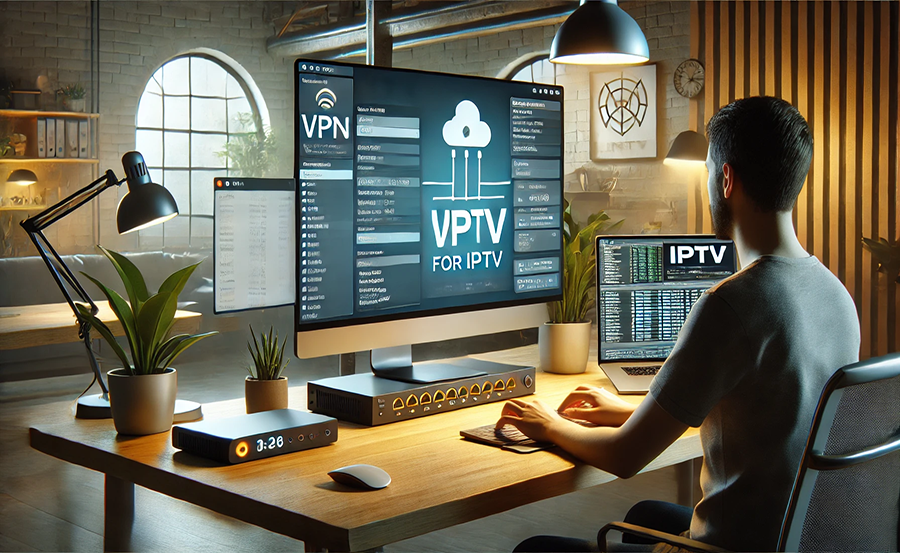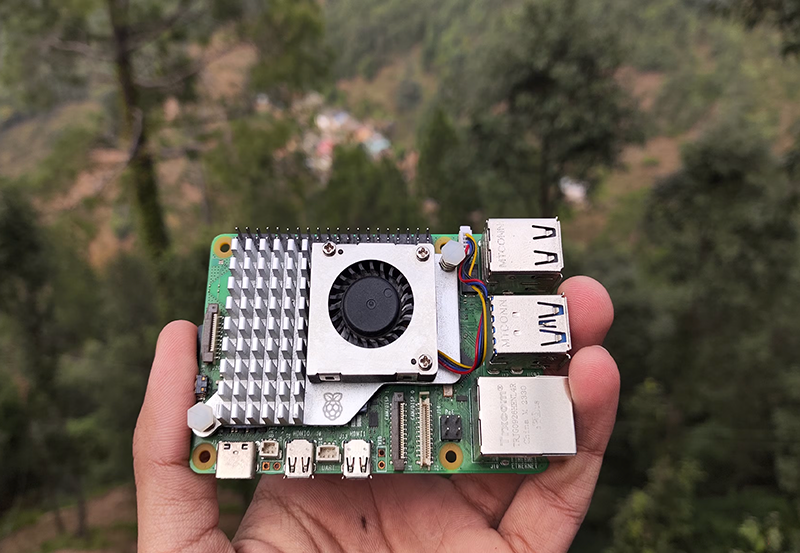In today’s digital age, the way we consume media has evolved drastically. With IPTV (Internet Protocol Television) becoming increasingly popular, users are exploring ways to enhance their viewing experience without compromising privacy and security. For Linux users, in particular, safeguarding these aspects is crucial. Enter VPNs (Virtual Private Networks), the essential tool that could transform your IPTV usage.
Understanding IPTV and Its Evolution
IPTV is transforming the way we access television content. Unlike traditional cable or satellite TV, IPTV streams media content over the internet. This approach provides greater flexibility, allowing users to access their favorite shows and channels through devices connected to the web. However, as IPTV gains traction, concerns about privacy and security also rise.
The Rise of DuplexIPTV and Similar Platforms
Platforms like DuplexIPTV have become synonymous with modern streaming, offering a robust selection of channels and user-friendliness. Their rise in popularity is largely due to their rich features, enabling users to navigate and select content effortlessly. Yet, with such convenience comes vulnerability, making the role of VPNs ever more critical.
Smart Insight:
Unlock premium UK entertainment with XtremeHD UK, offering crystal-clear live TV and on-demand content.
Popularity of IPTV Trials
For many, venturing into IPTV begins with trials. This allows potential subscribers to experience the breadth of content available before committing financially. However, these trials often open gateways to security vulnerabilities. Users need to ensure their personal data remains protected even during these trial phases.
Ultimate Streaming Insights for Security-Minded Users
Understanding the technicalities of IPTV is essential for anyone concerned with privacy. With the right insights, users can take proactive steps to protect themselves, ensuring a safe and secure streaming experience. This is particularly crucial for Linux users, who often value security and transparency.
Why Linux Users Should Consider VPNs for IPTV
Linux enthusiasts are known for prioritizing privacy. A VPN embodies this value by encrypting internet traffic, making it nearly impossible for prying eyes to monitor your online activity. For IPTV users, VPNs serve to avoid geographic restrictions, offering a plethora of benefits beyond basic security.
Enhancing Privacy on Linux Systems
A VPN helps in masking the IP address of the user, which is the first step toward maintaining anonymity online. For Linux users, this means their data is less likely to be tracked or intercepted. The open-source nature of Linux already offers some level of security; however, a VPN adds an extra layer of protection.
Security Concerns Addressed Specifically for IPTV
Streaming with IPTV services can expose users to a range of security risks. Malware, unauthorized access, and data breaches are some common threats. By incorporating VPNs, Linux users can significantly mitigate these risks, ensuring that their streaming activities remain private and secure.
Overcoming Geographic Restrictions
Accessing content that is geo-restricted can be a frustrating experience for many IPTV users. VPNs bypass these restrictions by allowing users to connect through servers in different countries. This not only broadens viewing choices but also maintains privacy during the process.
Choosing the Right VPN for Your IPTV Setup
Finding the right VPN can be daunting, given the vast array of options available. Each VPN offers distinct features, and not all are created equal, especially when it comes to Linux compatibility and IPTV support.
Key Features to Look For
- Server Locations: Opt for a VPN with a wide range of server locations to overcome geo-blocks easily.
- Speed: High-speed connections are crucial for uninterrupted streaming.
- Logging Policy: Ensure the VPN follows a strict no-logs policy to maximize privacy.
- Compatibility: The VPN should seamlessly work with Linux and IPTV applications.
Top VPNs Recommended for Linux Users
While there are numerous VPNs available, some stand out for their Linux compatibility and excellent streaming performance:
- NordVPN: Known for its top-notch security features and reliable performance.
- ExpressVPN: Offers a user-friendly interface and outstanding connection speeds.
- Surfshark: A budget-friendly option without compromising on quality.
Implementing a VPN into Your IPTV Setup on Linux
Setting up a VPN on a Linux system can be straightforward but might appear daunting to some. With the right guidance, however, Linux users can easily integrate a VPN for safer IPTV streaming.
Initial Steps for VPN Installation
Begin by selecting a VPN provider that meets your individual needs. After choosing, download the appropriate Linux client from the VPN’s official website. Install the software using the terminal or package manager suited to your distribution for a clean setup.
Configuring the VPN with Your IPTV Service
Once the VPN is installed, configuration follows. Open the VPN application and log in with your credentials. Next, connect to a server that supports IPTV streaming. Ensure the connection is secure before launching your IPTV application.
Troubleshooting Common Issues
VPN installation isn’t without its hitches. Increased latency, or reduced internet speed, is a typical concern. If you experience connectivity issues, retry using different servers or check your network stability.
Exploring Additional Benefits of Using VPNs with IPTV
VPNs not only enhance privacy and security but also provide several other invaluable benefits for IPTV, making them an indispensable tool for Linux users.
Improvement in Streaming Consistency
Using a VPN may actually stabilize your connection by rerouting traffic through less congested pathways. This often results in smoother streaming experiences with fewer interruptions or delays.
Access to Global Content
One of the most enticing benefits of using a VPN is the ability to access globally restricted content. This means endless streaming possibilities across platforms that may not be available in your geographic region.
Protection Against Bandwidth Throttling
Some ISPs limit speeds for streaming services. A VPN hides your activity, making it less likely for bandwidth throttling to occur, thus maintaining your streaming speeds.
What Lies Ahead for IPTV and VPN Usage
The future of IPTV and VPNs is a landscape ripe with potential. As technologies evolve, the intertwining of these tools could redefine how we access and interact with content, placing privacy and security at the forefront.
The Ongoing Development of IPTV Technologies
Continuing advancements in IPTV technology promise even more immersive experiences. With new features and services unveiled regularly, staying informed is crucial for users who want the best viewing experiences while minimizing risks.
Anticipated Innovations in VPN Services
VPN services are also set to evolve, offering cutting-edge encryption techniques, improved speeds, and user-friendly interfaces. These developments are expected to further integrate with IPTV, forming yet another critical layer of security for users.
FAQ: Navigating the Intersection of IPTV and VPNs

How can DuplexIPTV benefit from a VPN?
DuplexIPTV, like similar services, can enhance user privacy and security when paired with a VPN. This combination helps encrypt users’ internet traffic, protecting data from potential breaches.
Are VPNs essential for IPTV trials?
While not always essential, VPNs provide an added safeguard for IPTV trials. They help ensure that during the trial process, your data and privacy are kept intact and protected.
What is meant by ‘Ultimate Streaming Insights’ in relation to VPN and IPTV?
‘Ultimate Streaming Insights’ refers to the deeper understanding of how to effectively utilize VPN and IPTV together. This knowledge equips users with strategies for enhancing privacy, security, and accessibility in streaming activities.
What challenges might Linux users face with VPNs?
Linux users may encounter installation difficulties due to compatibility issues. However, choosing a VPN that supports Linux can reduce such challenges, leading to a more seamless setup process.
How do VPNs prevent ISP throttling for IPTV?
VPNs encrypt your online activity, concealing it from ISPs. As a result, the probability of bandwidth throttling for IPTV streaming decreases, leading to improved streaming quality.
Is there any difference in the VPN setup process on Linux compared to other operating systems?
Yes, the setup process on Linux can be distinct due to its command-line interface and different network management settings. However, most reputable VPN providers offer guides specifically for Linux setups.
Can a VPN slow down IPTV streaming speeds?
While there’s potential for speed reduction due to encryption overhead, most high-quality VPNs aim to maintain optimal speeds to ensure a seamless streaming experience.
Initiating IPTV on Plex: The First Steps to Take





